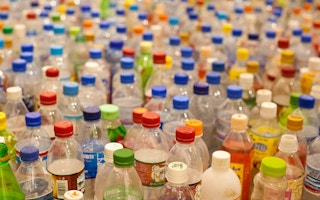In light of Covid-19 pandemic disruptions, the Singapore government has given companies another year before they must submit plans for reducing the amount of packaging they use.
To continue reading, subscribe to Eco‑Business.
There's something for everyone. We offer a range of subscription plans.
- Access our stories and receive our Insights Weekly newsletter with the free EB Member plan.
- Unlock unlimited access to our content and archive with EB Circle.
- Publish your content with EB Premium.
In an email from the National Environment Agency (NEA), seen by Eco-Business, companies were told on Tuesday that the deadline for mandatory reporting of their packaging data has been moved back a year. Instead of submitting data for this calendar year, they now need to submit next year’s data. The deadline for submitting plans for packaging reduction, reuse and recycling has also been postponed by a year, to 31 March 2022.
The mandatory reporting framework sets a baseline for a future Extended Producer Responsibility (EPR) scheme, which makes companies responsible for the take-back, recycling and disposal of packaging, which makes up about a-third of household waste in Singapore.
EPR schemes exist in other developed countries such as Sweden, where the concept was born in 1990, Germany, Japan, Taiwan and South Korea, and are believed to be critical for building a circular economy, a system where waste is eliminated and resources are continually reused.
“
If this is the new normal, waste and other environmental concerns should be dealt with on similar footing as socio-economic concerns.
Hailin Pek, executive director, Zero Waste SG
Recycling rates have increased in every country where EPR policies have been introduced, and Singapore’s recycling rate is low for a developed country—just 4 per cent of the city-state’s plastic waste was recycled last year, the rest was burned in waste-to-energy plants.
Singapore’s EPR regulations are expected to be in place for both packaging and electronic waste by 2025, and the revised packaging reporting timelines will not affect their timing, NEA told Eco-Business.
“There is currently no change to the plan to implement the EPR framework for packaging waste no later than 2025. This includes the plan to implement a Deposit Refund Scheme for beverage containers by 2022 as the first phase of the EPR framework for packaging waste management,” an NEA spokesperson said.
“There is also no change to the timeline to implement the EPR framework for e-waste. The Producer Responsibility Scheme for e-waste will commence on 1 July 2021.”
Hailin Pek, executive director of civic society group Zero Waste SG, which works with both the government and business on waste reduction initiatives, commented: “With the situation at hand, it does seem like packaging waste reduction has taken a back-burner temporarily, as we can see from the huge surge in use of packaging and disposable waste. This being unprecedented, it is understandable that some leeway is provided for later submission of data.”
“However, if we are dealing with this as a potential new normal, waste and other environmental concerns should be dealt with on similar footing as socio-economic concerns. We cannot afford to lose sight of the bigger elephant in the room - climate change.”
While EPR policies will go some way to address Singapore’s waste problem—the country’s only landfill site is expected to be completely full by 2035 or earlier—experts say that the regulations will be hard to implement.
After EPR rules are introduced, companies would reuse post-consumer content and feed it back into their packaging. But the high contamination rates of unsorted materials placed in Singapore’s recycling bins has raised worries about the quality of recycled material companies can use. Another concern is Singapore’s lack of recycling infrastructure.
Managing e-waste is expected to be easier, since there are already numerous used electronics collection points around the city, and e-waste is produced less frequently than packaging.












